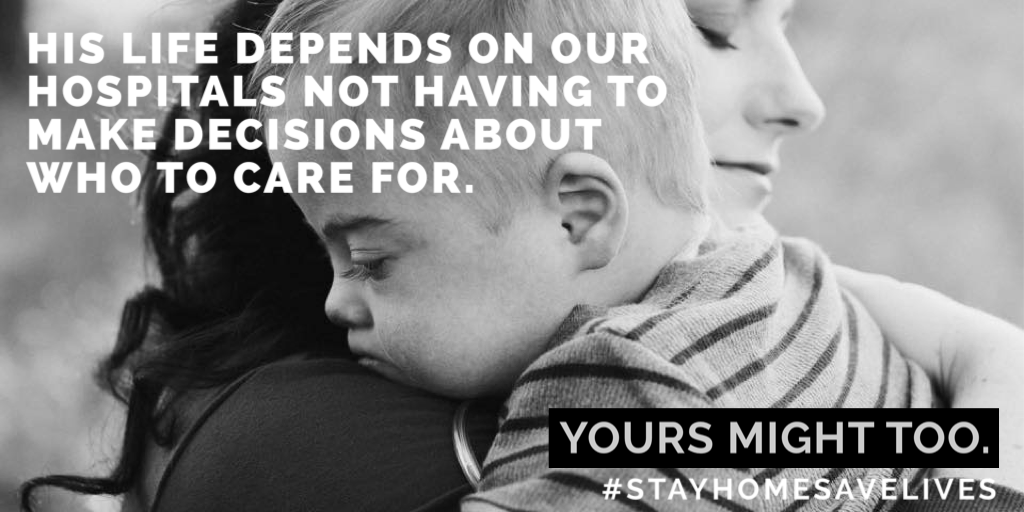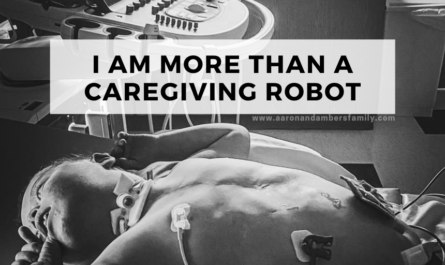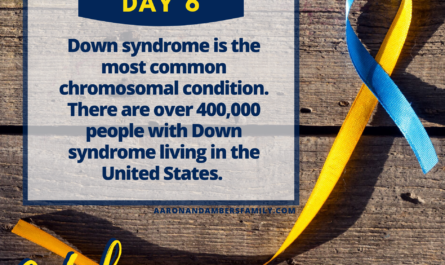As the hospitals are now beginning to fill up with patients in the hardest hit areas, they have to prepare to make decisions about how to ration care. When they surpass their capacity, they have to start making decisions:
Who will get the remaining ventilators? How long should they let an existing patient with long term ventilation needs stay ventilated when that one ventilator could potentially save multiple other people in the same span of time? What level of care can be supplied with the available nursing staff? Who will get the beds that are open? Who will they turn away or decide to only provide palliative options for?
The words below come from the plans currently being reviewed in Washington, but many hospitals/states already have similar existing plans. Those policies typically recommend to transfer hospital patients with “loss of reserves in energy, physical ability, cognition and general health” to outpatient or palliative care. (source)
Translation: the sickest, oldest, disabled and those with underlying health conditions will not receive the care they need in favor of caring for the healthier, younger, and “socially useful” members of our communities.
The way those plans are worded assumes that someones life who fits into those categories is worth less than the life of someone who isn’t. It uses numbers and statistics to determine who will get the best care and therefore the best chance at life.
I pray (and have sent many, many emails and comments to politicians) that the ADA is upheld and that disabilities aren’t used to discriminate care.
But odds are that underlying health conditions and viability of recovery will be one of the factors that stays in the criteria – similar to organ transplant decisions. And AJ would land at the bottom of the priority list as a result.
At the end of the day, when there’s only one ventilator left and the decision has to be made – who will get it? Your 65 year old grandparent who has no health concerns, my 4 year old son who has an intellectual disability and various health conditions, or a 30 year old new mother with asthma?
A decision will have to be made, and I don’t envy those who will have to make it.
AJ has defied the odds – multiple times and continues to defy them on a daily basis. I’ve brought my kid back to life with my own hands multiple times and watched a ventilator manage the rise and fall of his chest for months and ultimately have seen him walk away stronger when all was said and done. He is a fighter and has proven that over and over again.
But if the hospitals reach capacity and have to start making those hard decisions about who to treat and who to send home on palliative care? There’s a good chance that AJ and others like him wouldn’t get care, no matter what he was getting admitted for.
“Stay home if you’re that fragile,” they say.
Well guess what? We did, and we still managed to get sick. We are incredibly careful on a daily basis, and even more careful right now. We even wiped down our groceries and packages and somehow we managed to catch something. As of today, we are now all battling a mild mix of various cold/flu symptoms that started after we locked ourselves in at home.
Is it covid-19 or the flu? Or maybe a rhinovirus/common cold? Where did it come from? We don’t know. But fact is that for AJ, it doesn’t really matter. It’s a respiratory illness, and all respiratory illnesses are a huge risk for him.
I would be lying if I said this didn’t scare me. It’s mild now, and there’s room at the hospital now, but what if that changes?
My son’s life depends on the hospitals not having to make decisions about who to care for.
And it’s not just him. Your life, your friends lives, your families lives… they could very well depend on it too. When the hospital hits capacity, there’s no guarantee that any single one of us will be who will be chosen to get treated – for covid-19, heart attacks, car accidents, anything.
I know many of you have to leave home right now due to having essential jobs. I also believe that many businesses can do a much better job of defining what essential means – it’s not about the company’s bottom line, it’s about what is truly needed during this crisis.
I don’t think there is enough recognition or appreciation in the world for those of you who are risking everything yourselves and still show up to work every day anyway, knowing that you’re doing your part to treat our sick, keep food on our tables, water and electricity running, etc.
For those of you who are staying home, thank you too.
Social distancing is hard. We’ve done it for AJ’s safety to some degree for the past four+ years. I still struggle to not get in the car to go through a Starbucks drive through just to get out of the house most days. We appreciate you and love you and are incredibly thankful for your diligence in protecting our communities.
And for those of you who have decided these requests to stay home are just hyped up suggestions that don’t apply to you?
Maybe you’re right, and YOU will be fine. Heck, maybe you’re right and our hospitals won’t be overloaded…
But have you weighed out the cost of being wrong? Knowing that you can carry the disease and pass it on to someone else without having any symptoms?
Will you still feel the same when we start seeing that the hospitals are full and people are being turned away because there isn’t enough equipment to help them?
How will you feel about your choices when AJ, or your friends, or family — or YOU end up sick and end up at home struggling to breathe, potentially until they die?
Call me a fear mongerer if you want, but this is our reality. The policies for triaging and prioritization who will get care already exist. You can call me selfish too if you want, but I don’t want to ever see them put into place.
Stay home.
Stay home if you’re sick.
Stay at home if you’re not sick and not providing an essential service or completing an essential task.
Just. Stay. Home.




